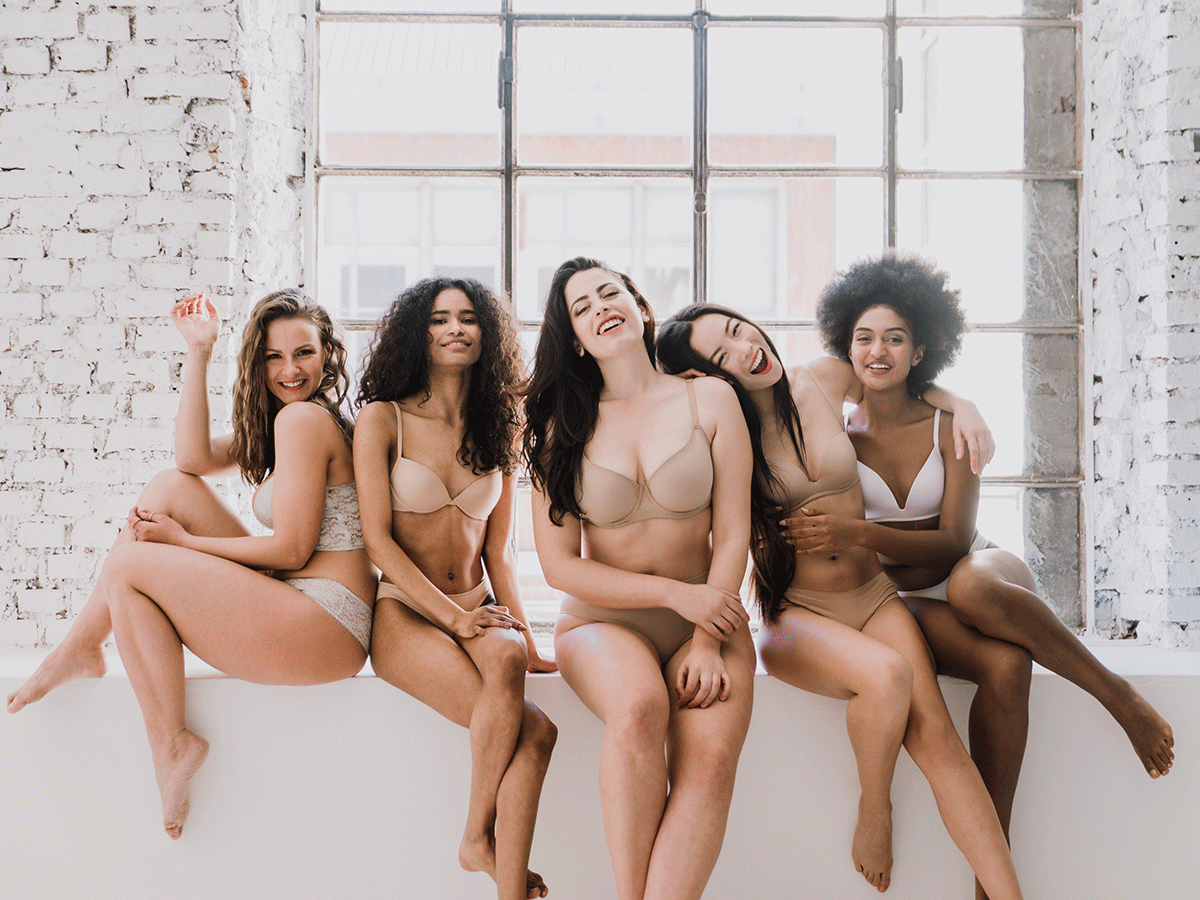5 Ways to Accept Your Body and Love Yourself

Want to feel good about yourself? You need to accept your body. Here, an expert shares how to escape the negative self-talk and see yourself in a positive, radiant light.
The term body positivity has become embedded in mainstream culture as a way to promote and highlight self-love for one’s own body. It’s about accepting our flaws, being happy with ourselves, and fighting for the visibility and acceptance of larger bodies. Although the movement has gathered steam in recent years, it’s nothing new. “Body positivity has its origins in the fat acceptance movement of the 1960s, and over the years has come to encompass all types of bodies—trans, differently-abled, large, small, medium,” says Elise Hall, LICSW, a licensed clinical social worker in Massachusetts and Rhode Island. We’ve been trying for decades to have all bodies accepted in the world—why haven’t we gotten there yet?
Maybe the problem is we’re aiming to love our bodies every single day, and if we fail, we give up. The better option? “Just reaching a basic level of appreciation for one’s body, and basic acceptance can be a lot more positive and motivating than this idea that you have to strive to always feel great about your body,” says Claire Mysko, CEO of the National Eating Disorders Association in Brooklyn, New York. “Body positivity all day, every day, isn’t a realistic goal.”
Here, what you can do to be more positive about your body.
1. Stop comparing yourself to others.
To do this, work on your thinking. Be cautious of the times when you’re comparing yourself to others, challenge these thoughts, and replace them with a more realistic and healthy thought-pattern, says Hall. For example: “That’s a great picture of that person, and that has nothing to do with me.” Or “I don’t know what other people think about me; All I know is how I think about myself or how I think about other people.”
(Psst: Read about the celebrities who got real about how they deal with body confidence.)
2. Focus on your health.
Body acceptance, or neutrality, means focusing on your health above your looks. “Work on separating your decisions about your health from your decisions about your weight or your body shape,” says Hall. Make a distinction between the two, and reframe your thoughts around weight and shape. For example, don’t just go to the gym because you’re trying to shed pounds off your mid-section—go to the gym because you haven’t gotten your heart rate up in awhile and you know it’s good for you.
3. Find inspiration in people who look like you.
Oftentimes, even in body-positive messaging, the bodies you see may not be similar to yours. But, that’s one of the benefits of social media, “You do have some ability, with the exception of advertising, to curate the content you’re seeing,” says Mysko. “Be proactive about seeking out a broader representation of bodies and experiences.” Be thoughtful about who and what you’re following on social media and opt to follow inspiring people and empowering hashtags. (See what we can all learn from Ashley Graham’s body confidence.)
4. Don’t forget that you don’t have to engage in social media.
“When you see that the culture is giving more attention and validation to certain types of stories, and certain body types,” says Mysko, “that’s where that appearance ideal continues to get reinforced.” It’s important to check out of the social cycle. “Understand that it’s possible and often recommended, if social media is making you feel bad about yourself, that you can take a break from that,” says Mysko.
5. Appreciate your body for what it does for you.
“Move away from this idea of focusing only on physical appearance,” says Mysko. Recognize what your body does for you, whether that’s engaging in an activity, fighting off an illness, or just taking you through a tough day. This reframe in thinking can help you detach from the illusion that purchasing more beauty treatments, cosmetics, or clothing will make you feel better about your body.
If you are struggling with an eating disorder and are in need of support, please call the National Eating Disorder Information Centre at 1-866-633-4220 or visit nedic.ca for help and an instant chat.
Now that you learnt how to be more positive about your body, make sure you don’t suffer from orthorexia.




